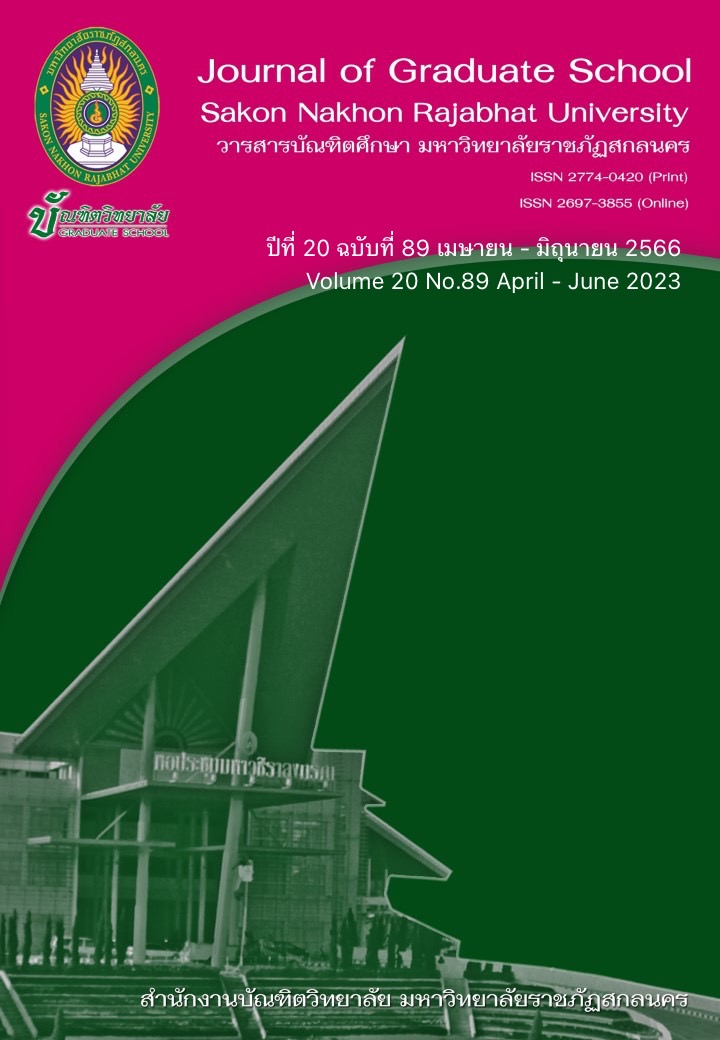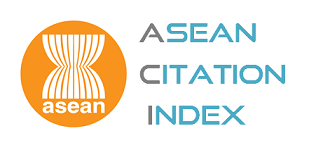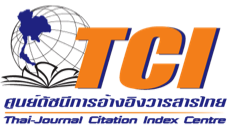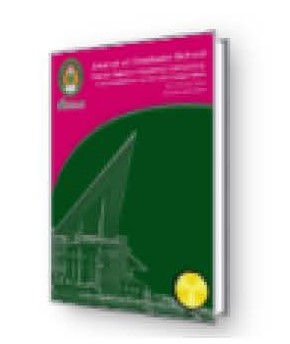ภาวะผู้นำทางวิชาการของผู้บริหารสถานศึกษาที่ส่งผลต่อประสิทธิผลของโรงเรียน สังกัดสำนักงานเขตพื้นที่การศึกษาประถมศึกษาสกลนคร เขต 2
Keywords:
Leadership, Instructional Leadership of School Administrators, School EffectivenessAbstract
The purposes of this research were to 1) examine the level of Instructional leadership of school administrators, 2) study the level of school effectiveness, 3) identify the relationship between instructional leadership of school administrators and the school effectiveness, 4) determine the predictive equation of instructional leadership of school administrators affecting the school effectiveness, and 5) establish guidelines for developing instructional leadership of school administrators affecting the effectiveness of schools under Sakon Nakhon Primary Educational Service Area Office 2. The samples, obtained through multi-stage sampling, consisted of school administrators and heads of the academic affairs division, yielding a total of 264 participants. The research instruments for data collection were sets of 5-level rating scale questionnaires on instructional leadership of school administrators with IOC ranging from .60 to 1.00, the discriminative power ranging from .41 to .88, and the reliability of .99, and the school effectiveness with IOC ranging from .80 to 1.00, the discriminative power ranging from .58 to .87, and the reliability of .97. The statistics for data analysis were frequency, percentage, mean, standard deviation, Pearson’s product-moment correlation coefficient, and Stepwise multiple regression analysis.
The results of this study showed that: 1) The level of instructional leadership of school administrators was at a high level both in whole aspects and each aspect, 2) The level of school effectiveness was at a high level both in whole aspects and each aspect,3)The relationship between Instructional leadership of school administrators and the school effectiveness showed positive correlation at the .01 level of significance, 4) The instructional leadership of school administrators in terms of setting the conducive atmosphere for learning (X4), supervision, monitoring and evaluation of teaching and learning management (X6), and setting vision, goals, and missions (X1), were able to predict the school effectiveness at the .01 level of significance, with the predictive power of 72.20. The predictive equation could be summarized in raw and standardized scores as follows: Y' = .832 + .320 X4 + .334 X6 + .150 X1 and Z'y = .378 Z4 + .373 Z6 + .165 Z1, and 5) Guidelines for developing instructional leadership of school administrators affecting the school effectiveness encompassed three aspects with 15 approaches. These aspects included creating a conducive atmosphere for learning with five approaches, supervision, monitoring, and evaluation of teaching and learning management with five approaches, and setting vision, goals, and missions with five approaches. The guidelines were formulated based on research findings related to the instructional leadership of school administrators, which could predict the school effectiveness. These guidelines were established as developmental principles following the reviews of the five experts.
References
กระทรวงศึกษาธิการ. (2546). หลักสูตรการศึกษาขั้นพื้นฐาน พุทธศักราช 2542 และที่แก้ไขเพิ่มเติม (ฉบับที่ 2) พุทธศักราช 2545. กรุงเทพฯ: องค์การรับส่งสินค้าและพัสดุภัณฑ์ (ร.ส.พ.).
กรุณา ภู่มะลิ. (2557). ปัจจัยการบริหารที่ส่งผลต่อประสิทธิผลโรงเรียนขนาดเล็กในภาคตะวันออก. วารสารบัณฑิตศึกษา มหาวิทยาลัยราชภัฏวไลยอลงกรณ์ ในพระบรมราชูปถัมภ์, 8(1), 158-172.
จรุณี เก้าเอี้ยน. (2557). เทคนิคการบริหารงานวิชาการในสถานศึกษา: กลยุทธ์และแนวทางการปฏิบัติสาหรับผู้บริหารมืออาชีพ. (พิมพ์ครั้งที่ 2). สงขลา: ชานเมืองการพิมพ์.
ชฎากาญจน์ เจริญชนม์. (2553). ภาวะผู้นำทางวิชาการที่มีผลต่อประสิทธิผลของโรงเรียน สังกัดสำนักงานเขตพื้นที่การศึกษาขอนแก่น เขต 1. วิทยานิพนธ์ ศษ.ม. ขอนแก่น: มหาวิทยาลัยขอนแก่น.
ทินกร ประเสริฐหล้า. (2553). การบริหารแบบมีส่วนร่วมที่ส่งผลต่อประสิทธิผลของโรงเรียน สังกัดสำนักงานเขตพื้นที่การศึกษาสกลนคร เขต 1. วิทยานิพนธ์ ค.ม. สกลนคร: มหาวิทยาลัยราชภัฏสกลนคร.
นิวัตต์ น้อยมณี. (2553). คุณภาพครูกับคุณภาพการศึกษา. กรุงเทพฯ: จามจุรีโปรดักท์.
ปัญญา น้ำใจสุข. (2556). การบริหารการเปลี่ยนแปลงที่ส่งผลต่อประสิทธิผลของสถานศึกษา สังกัดสำนักงานเขตพื้นที่การศึกษาประถมศึกษาสุพรรณบุรี เขต 2. วิทยานิพนธ์ ค.ม. นครปฐม: มหาวิทยาลัยราชภัฏนครปฐม.
เพ็ญนภา พลับฉิม. (2559). ภาวะผู้นำทางวิชาการของผู้บริหารสถานศึกษาที่ส่งผลต่อประสิทธิผลของโรงเรียน สังกัดสำนักงานเขตพื้นที่การศึกษาประถมศึกษาราชบุรี เขต 2. วิทยานิพนธ์ ค.ม. นครปฐม: มหาวิทยาลัยราชภัฏนครปฐม.
วีระยุทธ ชาตะกาญจน์. (2556). เทคนิคการบริหารสาหรับนักบริหารการศึกษามืออาชีพ. กรุงเทพฯ: สำนักพิมพ์แห่งจุฬาลงกรณ์มหาวิทยาลัย.
สัมมา รธนิธย์. (2556). หลักทฤษฎีและปฏิบัติการบริหารการศึกษา. (พิมพ์ครั้งที่ 3). กรุงเทพฯ: ข้าวฟ่าง.
สำนักงานเขตพื้นที่การศึกษาประถมศึกษาสกลนคร เขต 2. (2563). แผนปฏิบัติการประจำปีงบประมาณ พ.ศ.2563. เข้าถึงได้จาก https://web2.sakon2.go.th/plan2?fbclid=IwAR1mrnZk8Tp61hDS32DFiZWFBvck1KxjK5c1QnPZPHWI80WqlfY8t4yHys0. 21 มิถุนายน 2564.
สำนักงานคณะกรรมการการประถมศึกษาแห่งชาติ. (2544). การประเมินมาตรฐานโรงเรียนปีการศึกษา 2543. กรุงเทพฯ: สำนักนิเทศและพัฒนามาตรฐาน.
สำนักงานคณะกรรมการพัฒนาการเศรษฐกิจและสังคมแห่งชาติ. (2555). สรุปสาระสำคัญแผนพัฒนาเศรษฐกิจและสังคมแห่งชาติ ฉบับที่ 11 พ.ศ. 2555-2559. กรุงเทพฯ: สำนักงานคณะกรรมการพัฒนาการเศรษฐกิจและสังคมแห่งชาติ.
สุดาพร ทองสวัสดิ์ และสุจิตรา จรจิตร. (2556). การสังเคราะห์งานวิจัยเกี่ยวกับปัจจัยที่มีอิทธิพลต่อประสิทธิผลของการบริหารสถานศึกษา. วิทยานิพนธ์ ปร.ด. สงขลา: มหาวิทยาลัยหาดใหญ่.
อภิเดช พลเยี่ยม. (2556). ความสัมพันธ์ระหว่างภาวะผู้นำทางวิชาการกับประสิทธิผลของโรงเรียนของผู้บริหารสถานศึกษา สังกัดสำนักงานเขตพื้นที่การศึกษาประถมศึกษาร้อยเอ็ด เขต 3. วิทยานิพนธ์ กศ.ม. ขอนแก่น: มหาวิทยาลัยขอนแก่น.
Downloads
Published
How to Cite
Issue
Section
License
Copyright (c) 2023 Journal of Graduate School Sakon Nakhon Rajabhat University

This work is licensed under a Creative Commons Attribution-NonCommercial-NoDerivatives 4.0 International License.
บทความทุกบทความที่ตีพิมพ์ในวารสารบัณฑิตศึกษา มหาวิทยาลัยราชภัฏสกลนคร ถือว่าเป็นลิขสิทธิ์ของบัณฑิตวิทยาลัย มหาวิทยาลัยราชภัฏสกลนคร










